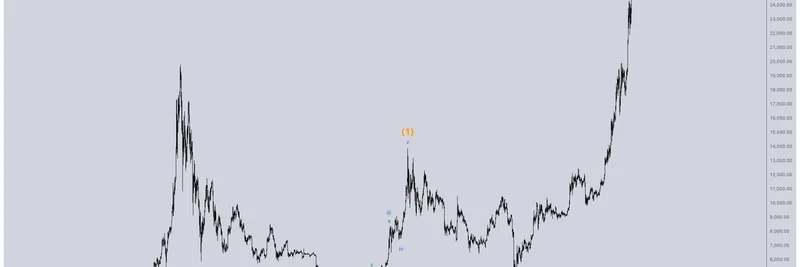In the fast-paced world of crypto, everyone's eyeing the prize: becoming the on-chain equivalent of Wall Street. But as a recent clip from the "When Shift Happens" podcast highlights, slapping Web3 tech onto old-school Web2 systems just adds unnecessary costs, delays, and headaches. Instead, the real game-changers are builders going fully native, like Paradex and others mentioned in the discussion.
The clip, shared by podcast host Kevin on X, features Anand Gomes, CEO of Paradex, breaking down why traditional banks, neobanks like Revolut or Robinhood, and even big exchanges like Binance might struggle to adapt. "Bolting on" Web3 to legacy rails means paying a "cost" in efficiency, he explains. Think of it like trying to run a high-speed train on outdated tracks – it's possible, but you're going to hit a lot of bumps.
The Advantage of Going Native
Anand points out that crypto exchanges have a slight edge over traditional banks because they're not as bogged down by century-old systems. But the true winners? Projects built from the ground up on blockchain, like Hyperliquid, Paradex itself, and similar platforms (he mentions "LIDAR et cetera," likely nodding to other innovators in the space). These native solutions can optimize for speed, low costs, minimal friction, and privacy – all crucial for capital markets.
In simple terms, capital markets thrive on efficiency. Lower costs mean better liquidity and capital formation, which is fancy talk for making it easier and cheaper to raise and trade funds. Native platforms skip the "bridge" between Web2 and Web3, avoiding the drag that comes with it. As Anand puts it, entities that hack on Web3 features will always have that extra layer of inefficiency, impacting user experience or fees.
What This Means for Meme Tokens
At Meme Insider, we're all about meme tokens, and this conversation hits home. Meme coins like Dogecoin or newer Solana-based sensations rely on rapid, low-cost trading to fuel their viral pumps and community-driven hype. Platforms like Paradex, which specializes in crypto derivatives (think perpetual futures for betting on price moves without owning the asset), make it easier for traders to jump in without the hassle of cross-chain bridges or high fees.
Imagine trading a hot new meme token perp on a native DEX – no waiting for settlements, no exorbitant gas fees, just pure on-chain action. This reduces barriers for retail traders, who are the lifeblood of meme ecosystems. As more volume shifts to these efficient venues, we could see even wilder liquidity in meme markets, potentially amplifying those legendary 100x runs.
Key Takeaways from the Thread
The X post sparked some buzz, with replies echoing the sentiment. Users like @SadraWeb3 chimed in: "native builders are reshaping the future of onchain trading." Others noted challenges in scaling but agreed Web3's economic potential is drawing in Web2 folks. It's clear the community sees native as the way forward.
Paradex, co-founded by Anand Gomes and @fiddybps1 (a key builder from their previous venture Paradigm, a top institutional crypto options marketplace), is positioning itself as a leader here. Their focus on decentralized derivatives aligns perfectly with the push for on-chain finance.
Looking Ahead
As blockchain tech evolves, watch for more native platforms to emerge, especially in DeFi and trading. For meme token hunters, this means scouting projects that integrate seamlessly with these low-friction ecosystems. If you're into perps or options on memes, check out Paradex's offerings – they could be your edge in the next bull run.
For the full context, head over to the original thread on X or catch the podcast episode on platforms like Spotify. What's your take? Are native builders the future, or will big players adapt fast enough?




